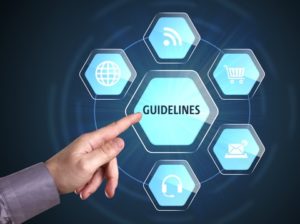10 New Clinical Practice Guidelines on Immunotherapy for Mesothelioma
 The Society for Immunotherapy of Cancer (SITC) organized a multidisciplinary panel of experts to develop new clinical practice guidelines on the use of immunotherapy in mesothelioma treatment.
The Society for Immunotherapy of Cancer (SITC) organized a multidisciplinary panel of experts to develop new clinical practice guidelines on the use of immunotherapy in mesothelioma treatment.
Immunotherapy is a type of cancer treatment. It uses the patient’s immune system to fight cancer. Immunotherapy has changed lung cancer care in recent years. It can help some patients survive longer. There is a new type of immune treatment called Immune checkpoint inhibitors (ICIs). ICI’s are used to treat patients with mesothelioma.
The use of ICIs to treat mesothelioma tumors has quickly become part of clinical practice. Immune checkpoint inhibitors block mesothelioma’s natural resistance to immune system
Challenges remain on how to identify patients who might benefit from ICIs. A panel of experts recently published universal guidelines for maximal benefit with immunotherapy.
Panel of Experts Develop a Clinical Practice Guideline
The Society for Immunotherapy of Cancer (SITC) organized a multidisciplinary panel of experts to develop a set of guidelines. Their goal was to provide guidance to the oncology community on the use of immunotherapy.
The expert panel reviewed all the published literature. And used their clinical experience to develop recommendations. These guidelines are for healthcare professionals on important aspects of immunotherapeutic treatment. Recommendations include diagnostic testing, treatment planning, and patient quality of life considerations.
These new clinical practice guidelines give guidance to cancer care providers using immunotherapy to treat patients with mesothelioma.
SITC reports that 3,000 new cases are diagnosed in the U.S. each year. Mesothelioma was the primary cause of death for 45,221 persons aged over 25 years from 1999 to 2015.
Ten Panel Recommendations
- A tissue biopsy should be used to diagnose mesothelioma. And, the pathology report should include the histologic subtype.
- Patients with mesothelioma should consider genetic testing for BAP1 mutation.
- Consultation with thoracic surgeons, pulmonologists, radiation oncologists, and medical oncologists should be considered for newly diagnosed mesothelioma patients.
- All mesothelioma patients should be offered participation in clinical trials when possible.
- Patients with epithelioid subtype mesothelioma should have individualized treatment decisions with combinations of immunotherapy and chemotherapy.
- Patients with non-epithelioid subtype mesothelioma should consider nivolumab plus ipilimumab.
- Routine PD-L1 testing is not necessary for mesothelioma patients.
- Routine TMB testing is also not recommended.
- After treatment with nivolumab and ipilimumab, patients should consider platinum-based chemotherapy with pemetrexed.
- Patients who have progressed after immunotherapy and chemotherapy should enroll in clinical trials.
Conclusion
The treatment of mesothelioma has improved significantly with the use of immunotherapy. This latest SITC guideline provides new treatment guidance based on the latest data.
These guidelines will be updated as the field continues to develop.
Source:
Govindan, Ramaswamy, Charu Aggarwal, Scott J. Antonia, Marianne Davies, Steven M. Dubinett, Andrea Ferris, Patrick M. Forde et al. “Society for Immunotherapy of Cancer (SITC) clinical practice guideline on immunotherapy for the treatment of lung cancer and mesothelioma.” (2022): e003956. https://digitalcommons.wustl.edu/open_access_pubs/11944





